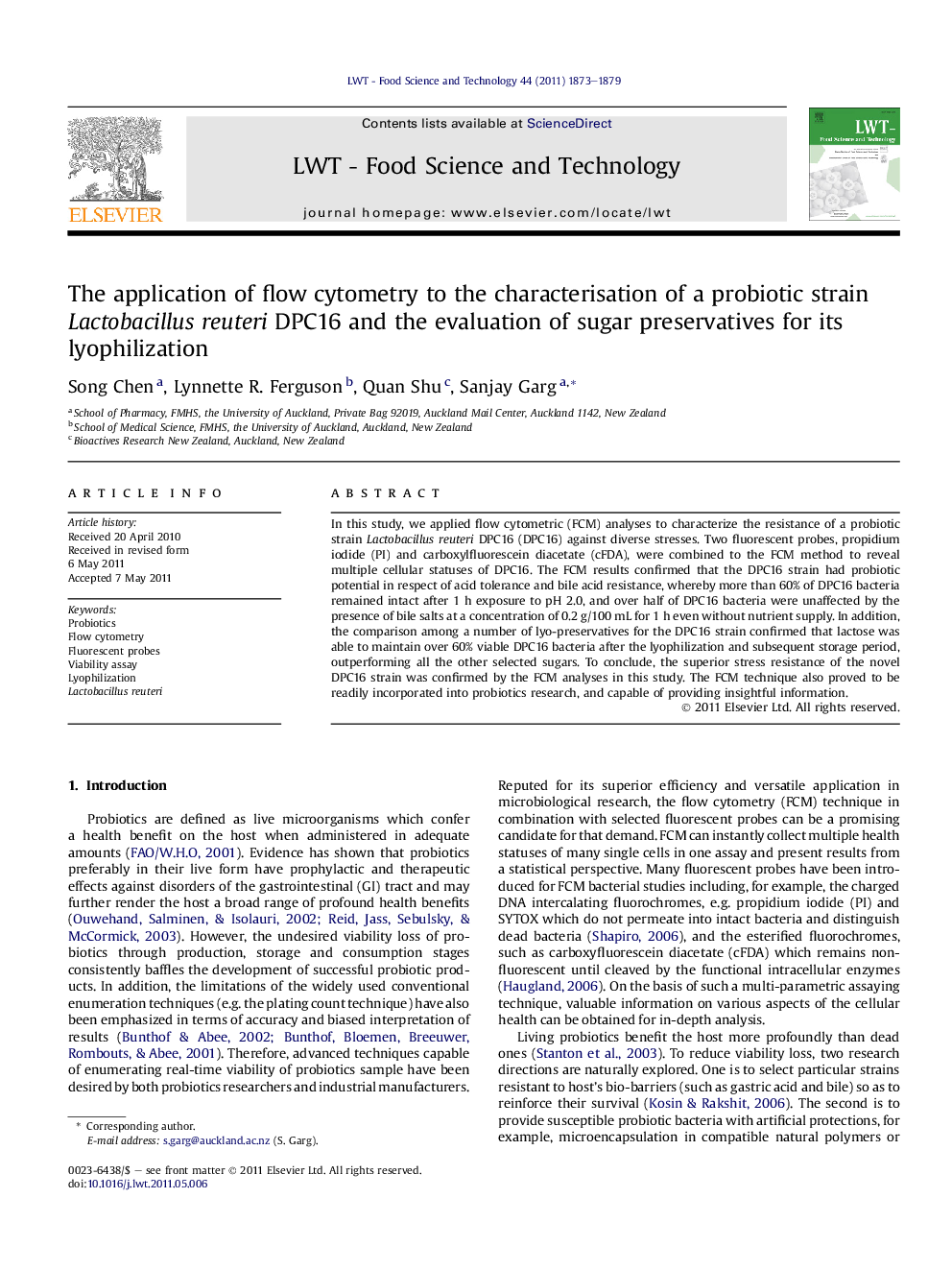| Article ID | Journal | Published Year | Pages | File Type |
|---|---|---|---|---|
| 6405952 | LWT - Food Science and Technology | 2011 | 7 Pages |
In this study, we applied flow cytometric (FCM) analyses to characterize the resistance of a probiotic strain Lactobacillus reuteri DPC16 (DPC16) against diverse stresses. Two fluorescent probes, propidium iodide (PI) and carboxylfluorescein diacetate (cFDA), were combined to the FCM method to reveal multiple cellular statuses of DPC16. The FCM results confirmed that the DPC16 strain had probiotic potential in respect of acid tolerance and bile acid resistance, whereby more than 60% of DPC16 bacteria remained intact after 1Â h exposure to pH 2.0, and over half of DPC16 bacteria were unaffected by the presence of bile salts at a concentration of 0.2Â g/100Â mL for 1Â h even without nutrient supply. In addition, the comparison among a number of lyo-preservatives for the DPC16 strain confirmed that lactose was able to maintain over 60% viable DPC16 bacteria after the lyophilization and subsequent storage period, outperforming all the other selected sugars. To conclude, the superior stress resistance of the novel DPC16 strain was confirmed by the FCM analyses in this study. The FCM technique also proved to be readily incorporated into probiotics research, and capable of providing insightful information.
⺠Flow cytometry (FCM) can be a useful analytical tool for probiotic research. ⺠Fluorescent probes provide in-depth information on cellular statuses of probiotics. ⺠L. reuteri DPC16 is proved to be with a high probiotic potential by the FCM method.
